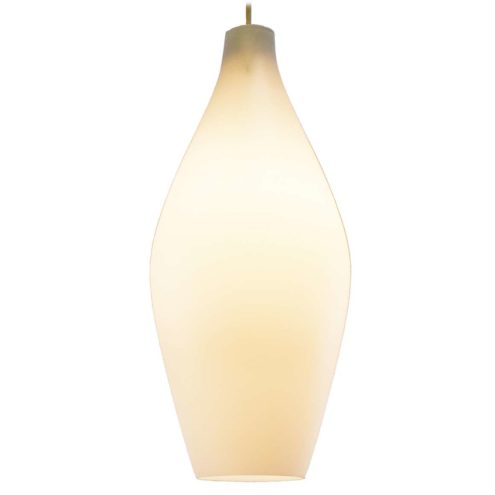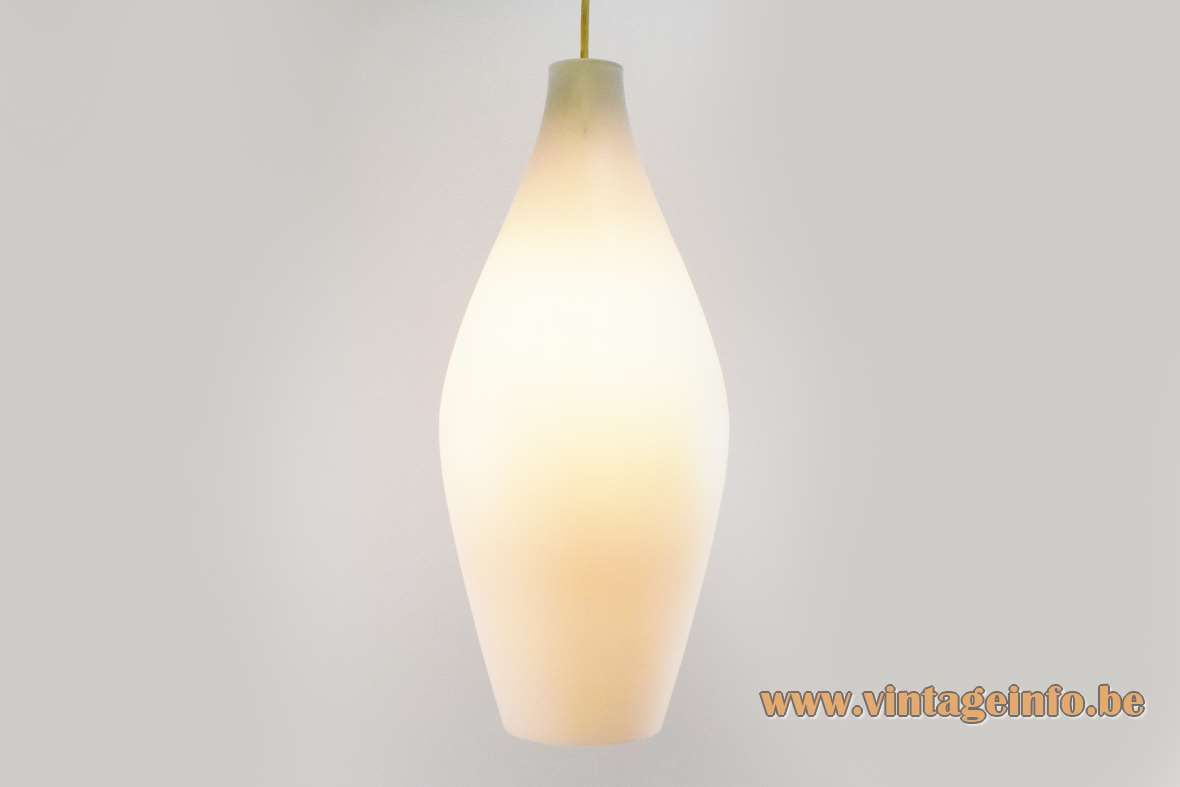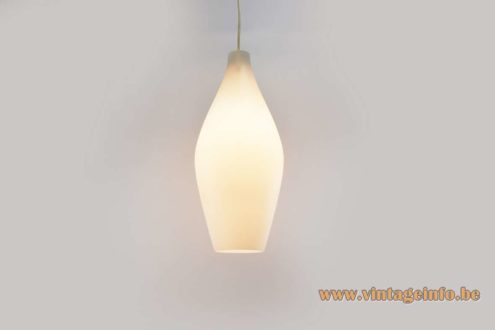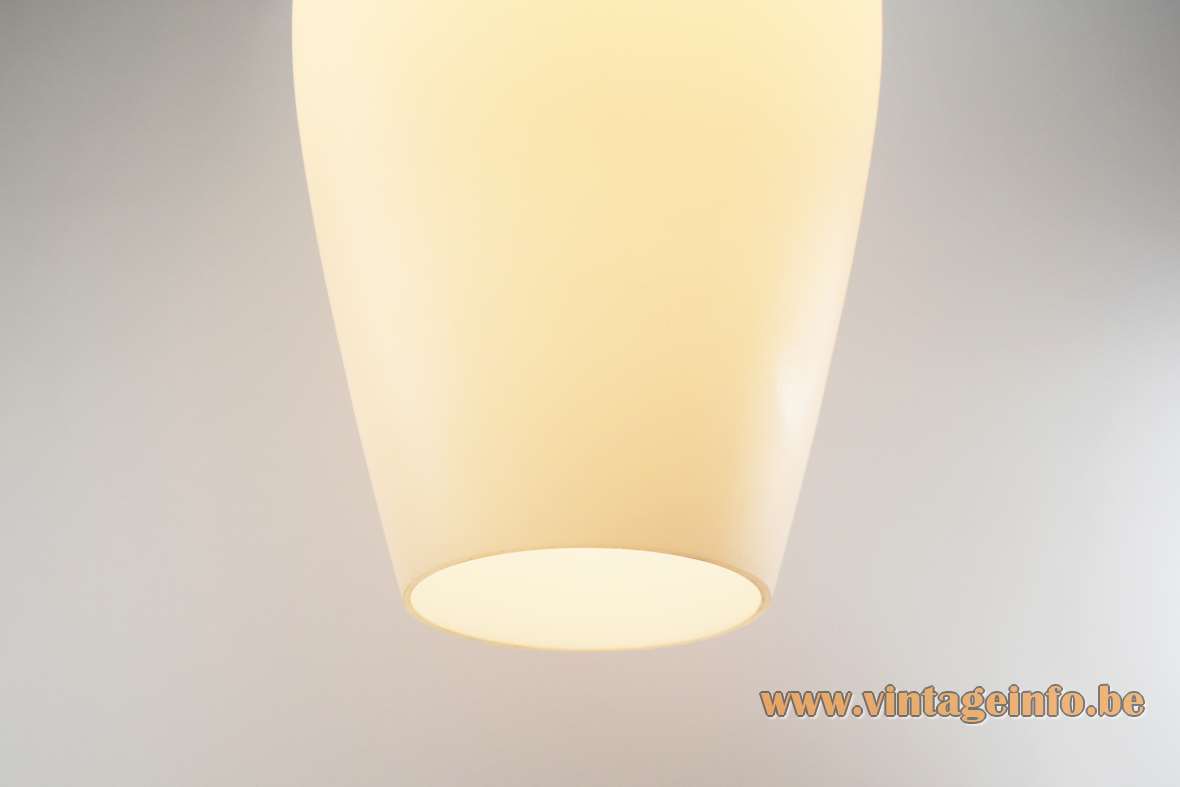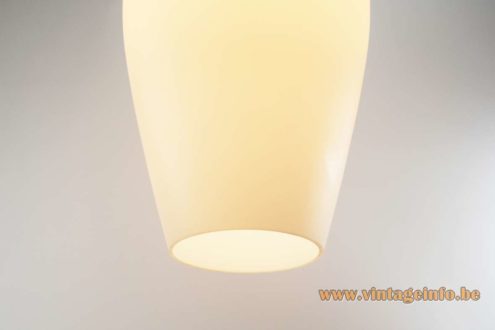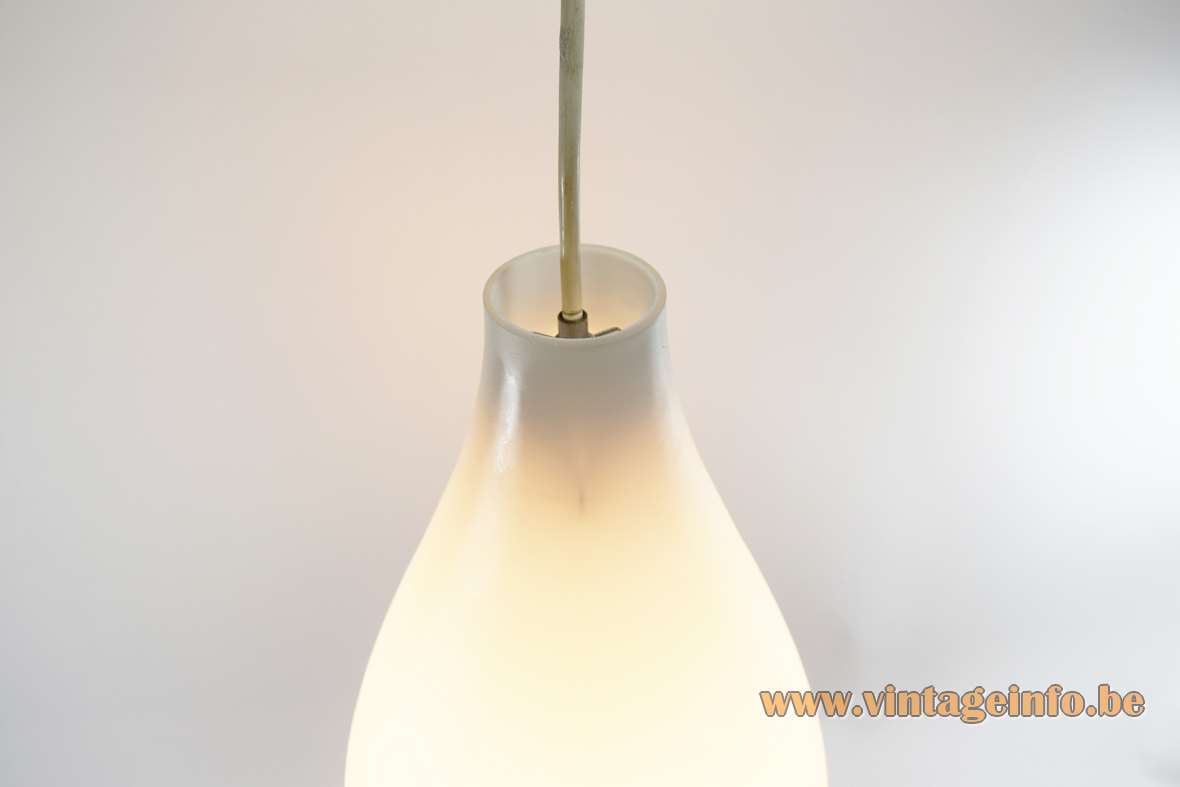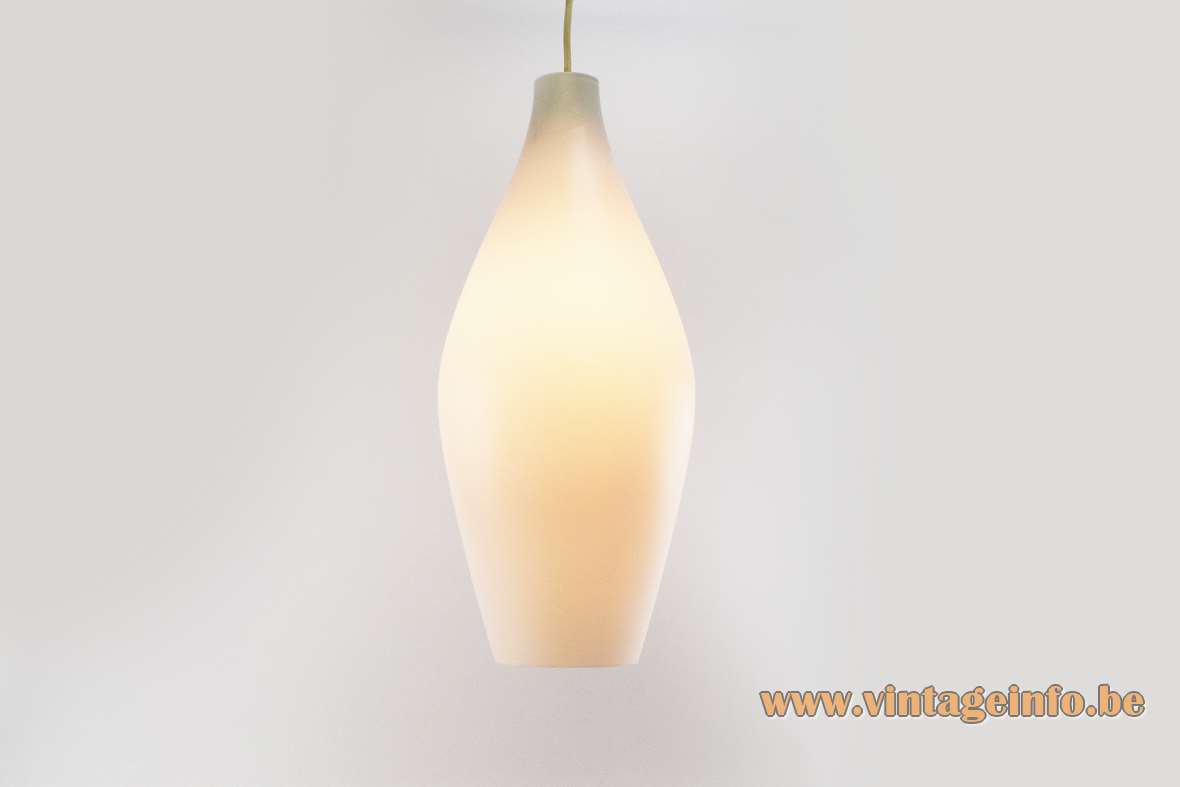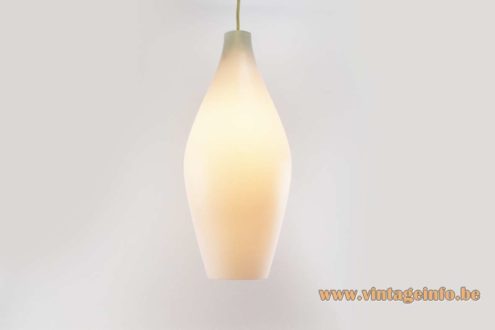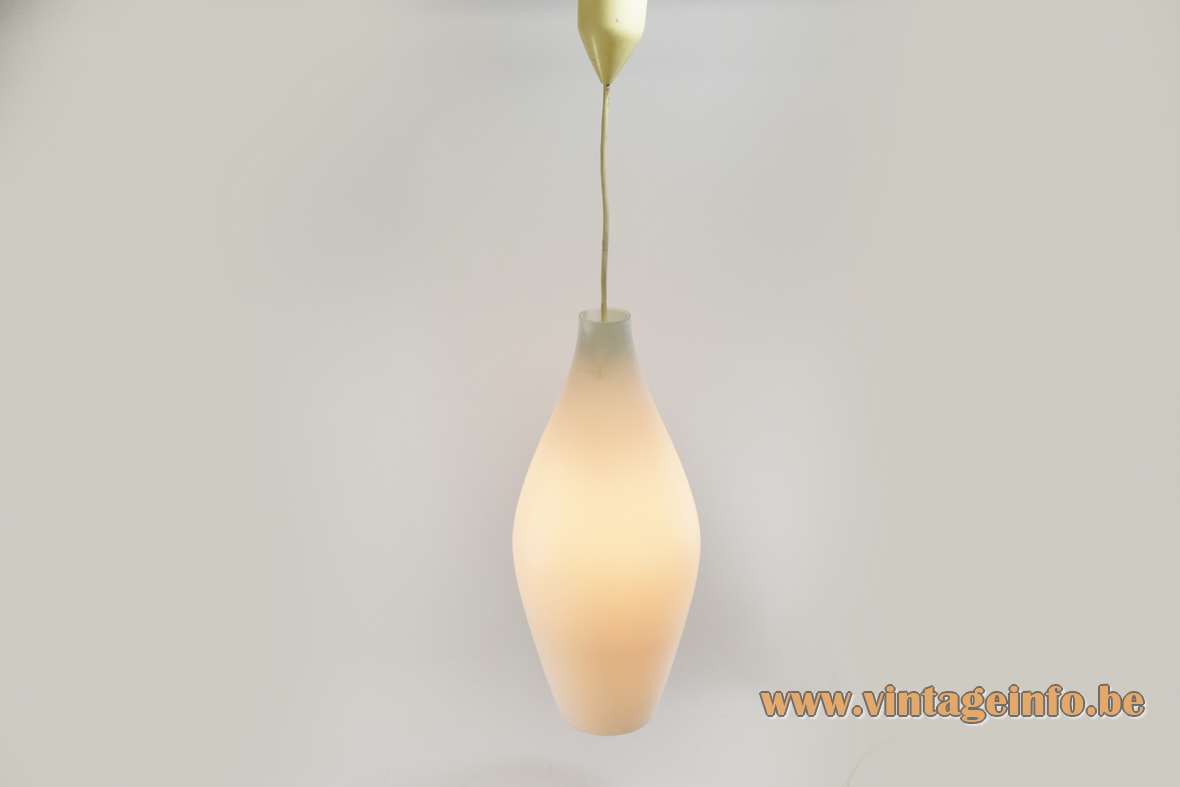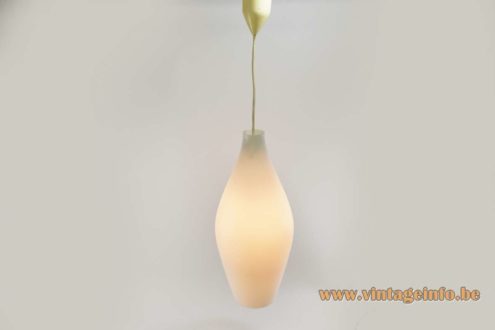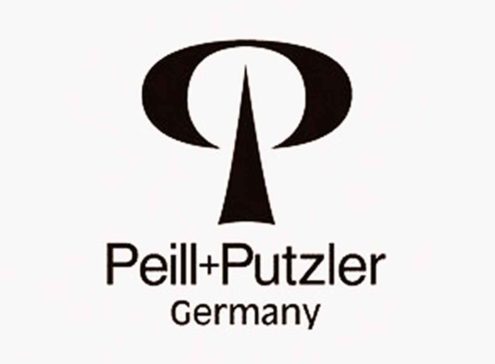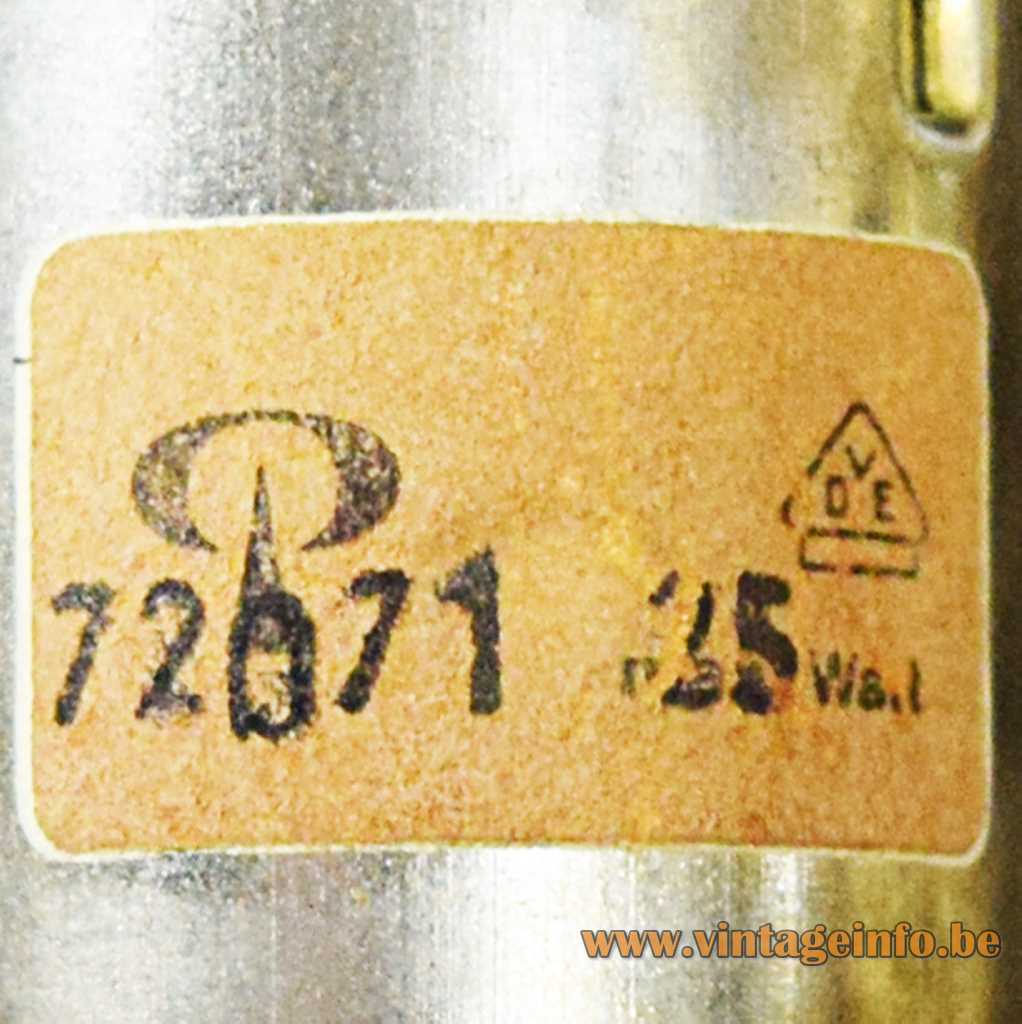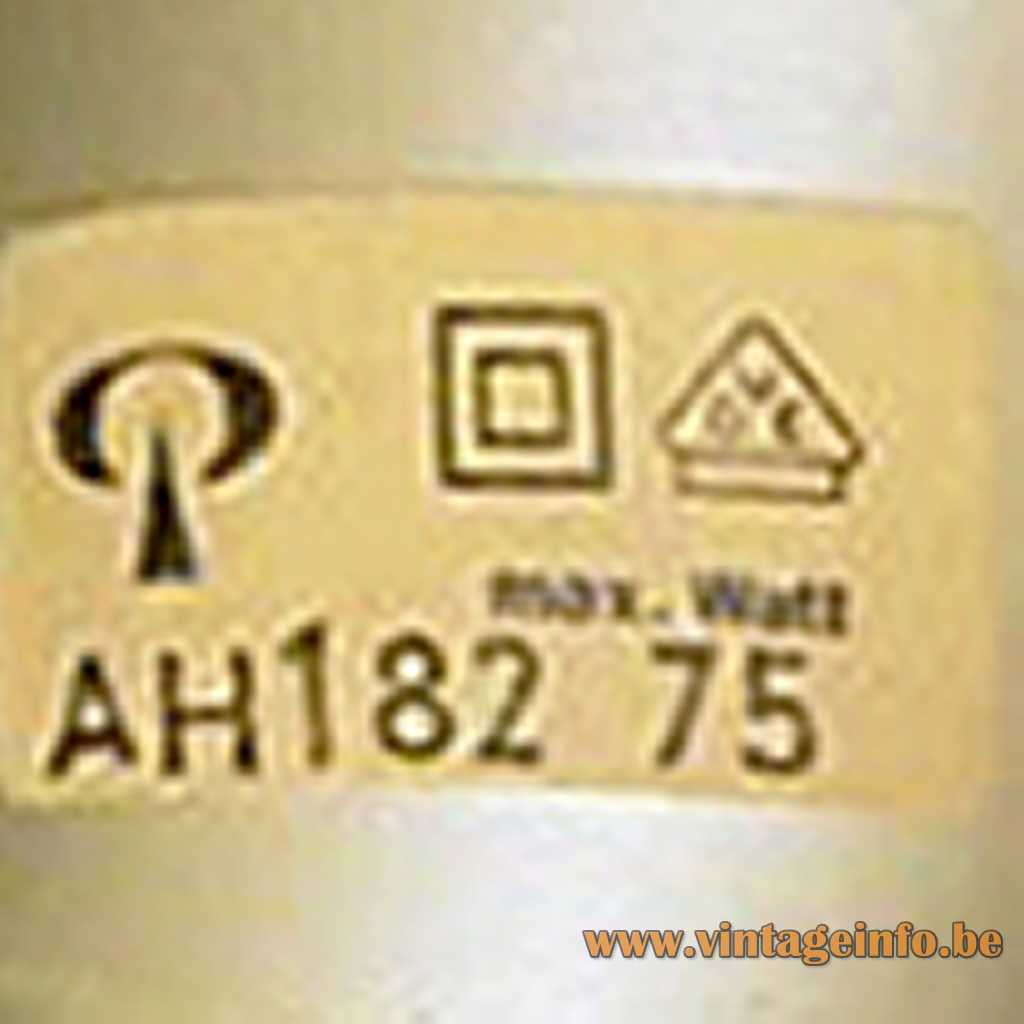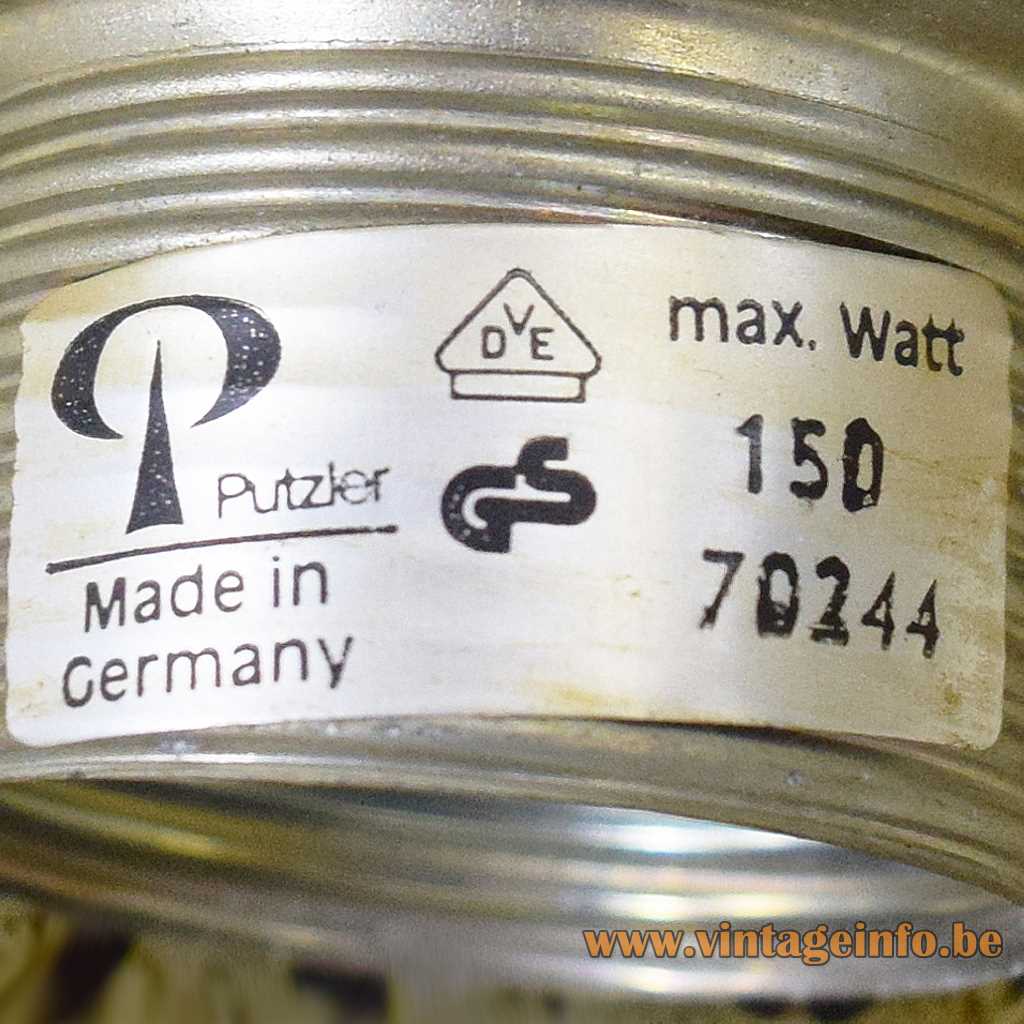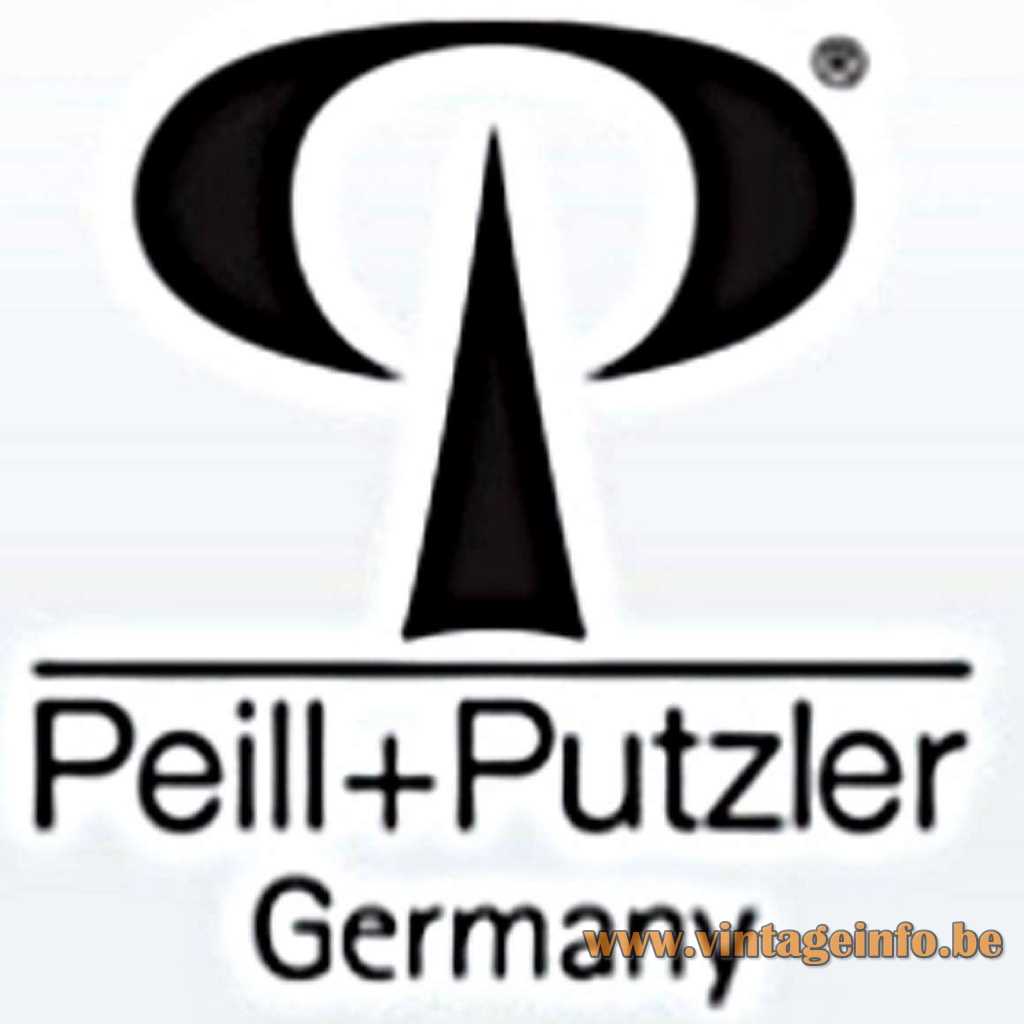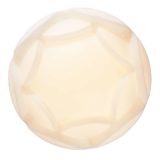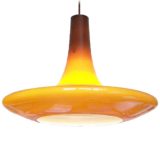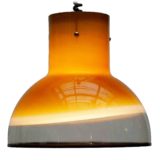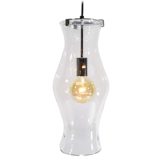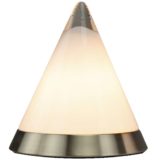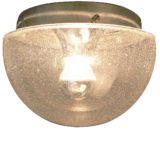Aloys Ferdinand Gangkofner Granada Pendant Lamp -1960 Catalogue Picture
Aloys Ferdinand Gangkofner Granada pendant lamp together with the Ibiza pendant lamp in a 1960 Peill+Putzler lighting catalogue. The Ibiza pendant lamp is also an Aloys Ferdinand Gangkofner design.
Aloys Ferdinand Gangkofner Granada Pendant Lamp – Peill+Putzler Logo
Links (external links open in a new window)
Aloys Ferdinand Gangkofner website
iF-Design awards for Peill+Putzler
Vintageinfo
Lamps by Aloys Ferdinand Gangkofner
Aloys Ferdinand Gangkofner Granada Pendant Lamp
Materials: Crystal vetro doublé hand-blown white opal glass convex lampshade. Clear frosted, satin on the outside, white on the inside. Some metal parts. Metal E27 socket.
Cord Length: 100 cm / 39.37’’
Height: 50,5 cm / 19.88”
Width: ∅ 22 cm / 8.66”
Electricity: 1 bulb E27, 1 x 100 watt maximum, 110/220 volt.
Any type of light bulb can be used, not a specific one preferred. But a white, opaque or frosted one gives the most beautiful result.
Period: 1950s, 1960s – Mid-Century Modern.
Designer: Aloys Ferdinand Gangkofner (1920-2003).
Manufacturer:Peill+Putzler, Düren, Germany.
Other versions: This Aloys Ferdinand Gangkofner Granada pendant lamp exists with several designs, but it has always the same form. Some small variations in height. These lamps are all hand-blown.
Vetro Doublé: an object made of two layers of glass normally of two different colours. In this case clear frosted/satin/matt on the outside and white on the inside.
Aloys Ferdinand Gangkofner
Aloys Ferdinand Gangkofner (1920–2003) was a German glass and lighting designer from the Bavarian Forest. Trained at the Staatliche Fachschule für Glasindustrie (State Technical School for the Glass Industry) in Zwiesel, he explored free-blown techniques at Lamberts in Waldsassen and translated those methods into serial production, treating glass and light as an inseparable pair throughout his career.
From 1953 he worked as a freelance designer for Peill+Putzler in Düren, developing blown-glass pendants and ceiling lights that became widely distributed; from 1959 he designed for ERCO in Lüdenscheid, where many 1960s–70s acrylic/geometric pendants entered the market. He also created designs for Hessenglaswerke and collaborated with Corning in the U.S. (industrial glass). In 1954 his work earned a Gold Medal at the Milan Triennale.
Alongside product lighting, Gangkofner built large light installations—often arrays of prisms or crystal spheres—and taught for decades at the Academy of Fine Arts, Munich, becoming Honorary Professor (1973) and later establishing the Chair of Glass and Light (1983). He died in Munich in 2003.
Legacy. Several of his mid-century lighting designs have been reissued by mawa design in recent years (including a 2025 relaunch).
Peill+Putzler
Glashüttenwerk Peill und Sohn was founded in 1903 in Düren, a small town in (West) Germany. Peill und Sohn merged with Putzler (founded in 1869) in 1947 as a glassworks and lighting company, becoming Peill+Putzler Glashüttenwerke.
The company worked with important designers such as Wilhelm Wagenfeld, William Brown, Helmut Demary, Aloys Ferdinand Gangkofner, Horst Tüselmann, Dieter Sieger, Gerhard Beigel, and many others.
In the 1950s, around 1,500 people worked for the company. They also produced glass for other European lighting firms, such as Raak and Philips (The Netherlands) and Massive (Belgium), to name a few.
Peill+Putzler received many design awards, not only for lighting. The company received 86 iF Design awards.
In 1995, production of glass and lighting moved to Slovenia, Poland, and the Czech Republic. Only the trading of lamps and glass remained in Düren. In 2005, one year after its 100th anniversary (2004), the company filed for bankruptcy.
In 2008, the name Peill+Putzler was reused for several years, including for the Wagenfeld lighting sold by the German lighting company Paul Neuhaus.
Today the former Peill+Putzler factory, now called Glashütte Düren, has been converted into various businesses and a conference centre.
Peill+Putzler was reactivated in 2022–23 and is now issued by Peill+Putzler Leuchten GmbH & Co. KG in Hemer, Germany, about 150 kilometres from Düren. Organizationally, the company is linked to IS Leuchten via the same address and managing director, Torsten Alberts. A new catalogue has been online since 2025, with several of the old icons, such as the Lido table lamp.
